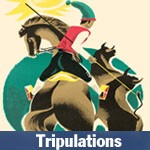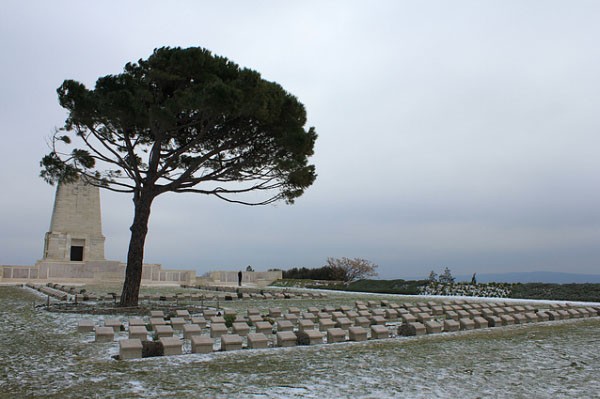 Nicola Heath writes: There’’s a reason it’s called the “off-season”. Pleasure-seeking humans are invariably drawn to sunny skies and welcoming climes.
Nicola Heath writes: There’’s a reason it’s called the “off-season”. Pleasure-seeking humans are invariably drawn to sunny skies and welcoming climes.
Which would explain the absence of fellow tourists in Turkey when I visit in February. Having lived in Melbourne and London, I’m not one to be put off by a bit of challenging weather — unless it turns out it’s an even zero and the icy rain is coming in sideways.
But these are the conditions we battle through crossing Istanbul’s Taksim Square, and crossing it again, cursing, trying to find the rental car office.
We find it eventually and leave Istanbul heading west, intending to spend the first night of our rental car road trip in Eceabat, on the Gelibolou (Gallipoli) peninsula. I’m so cold and relieved to be out of the hostile weather that I’d be happy to spend the day in the car, parked in front of the rental car office with the heater running. Paul is in his element as he weaves in and out of traffic in the accepted Turkish style, and each back-end dingle we pass (four before we leave the city limits) cheers me a little, for not being an involved party.
On a whim we decide to drive via the Black Sea coast, just to have a look. As we turn off the freeway and drive closer to the seaside resort town of Kiyikoy it becomes increasingly clear that we probably won’t be gazing at gin-coloured waters over lunch. At first the snow is patchy, but it becomes more and more plentiful until all is white and the branches of the trees by the roadside are encased in icicles. It is a fairytale landscape, and to my eyes looks very European, especially when I think of the scorching Sydney summer I have recently abandoned.
We lunch at a restaurant overlooking a stormy stretch of Black Sea coast.
We are of course the only diners, and probably the only people to eat here all week. Or all winter. Our hosts are welcoming, and so is the fire drum in the centre of the room. The proprietor and his family sit at a nearby table, each at a computer and smoking cigarettes. Occasionally a burst of noise erupts from a computer, either video of a football match or a snippet of what sounds like the Eurovision qualifiers. I light a cigarette, not because I want one but for the little thrill of transgression kindled by smoking indoors, and our host seems pleased, laughing as he points to the new-looking non-smoking sign.
After our lunch we return to the rental car, albeit a little sedated after numerous dishes including a whole fish each and a beer. For the rest of the afternoon we drive through the Turkish countryside, passing scenic farmland and less scenic factories, until on nightfall we arrive in Eceabat. Most visiting Australians and Kiwis use Eceabat as a base from which to tour the Gallipoli battlefields, and although we’re a long way from home no one is surprised we’re Australian. We stay, after all, at a hotel named Crowded House.
Gallipoli is a place of sadness. The ease with which we drive between old battlefields — ground paid for with lives — and knowing as we do the fate of the campaign makes, the terrible waste of life seems as pointless as ever. On this freezing February day (I can appreciate the haste with which they left here in December; the cold was killing soldiers), the small cemeteries are deserted and the only footsteps in the snow are ours.
We cross the Dardanelles on a car ferry, which must have been how Alexander the Great got his army across the strait in 334BC, landing at Cannakule. From there we head south on the motorway, past the smog-choked concrete industrial hub of Izmir (Turkey’s third largest city) and along the Aegean coast. We aim for Selcuk, the closest town to the famous ruins of Ephesus.
I read somewhere that the hordes of tourists who visit Ephesus everyday help recreate what was a bustling ancient city, so now I imagine Ephesus populated with portly white-haired Germans. It is a vast archaeological site, with layers of Greek and Roman ruins in various stages of excavation and evidence of Neolithic settlement predating that. Today you can stroll down ancient avenues, past grand fountains and ruined temples, houses and stadia.
The partially standing Library of Celcus is particularly arresting. Artefacts collected from the site are kept at the museum in Selcuk, and among the statues and carved frescoes housed there are kitchenware and jewellery that wouldn’t look out of place in a home today.
Our sight-seeing done, we set forth home. It is a long drive and we aim for Bandirma, a utilitarian city on the southern shore of the Sea of Marmara. It’s our bright idea to take the ferry to Istanbul to avoid the long drive around the inland sea, and in good spirits we arrive at the port after a whole afternoon driving, but the ferry has been cancelled for the rest of the week due to bad weather. As darkness falls we head to Bursa, where we book into a shady hotel an hour later than we should have thanks to the city’s refusal to be navigated by me in the passenger’s seat. When we arrive in Istanbul (to better weather than we left it thankfully) the next morning and walk from Taksim Square back to our flat on Yeni Cardi Cardessi, I have an odd sense of arriving home.
Nic Heath also blogs at [nicopedia].










Crikey is committed to hosting lively discussions. Help us keep the conversation useful, interesting and welcoming. We aim to publish comments quickly in the interest of promoting robust conversation, but we’re a small team and we deploy filters to protect against legal risk. Occasionally your comment may be held up while we review, but we’re working as fast as we can to keep the conversation rolling.
The Crikey comment section is members-only content. Please subscribe to leave a comment.
The Crikey comment section is members-only content. Please login to leave a comment.